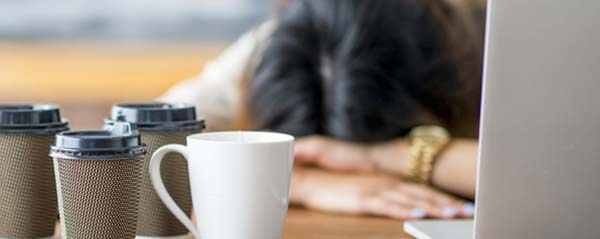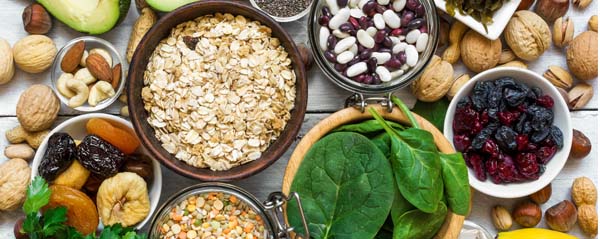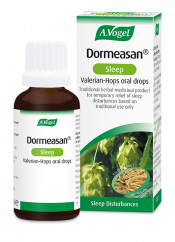How does caffeine affect your brain?
Caffeine is the most widely consumed drug in the world and this definitely shows when you consider how many of us are brewing tea and coffee on a daily basis. Here in the UK alone, around 95 million cups of coffee are consumed every day, a staggering amount that is still dwarfed by our nation’s infatuation with tea, which beats coffee at 165 million cups daily.1,2 This is incredible when you think that the population of the UK is only around 60 million.
How are these popular beverages affecting our health and our sleep patterns though? Well, opinions on the subject are surprisingly divisive with recent claims that coffee can not only make us happier but also boost our energy levels and protect our brain function.
How much truth there is to these arguments can depend on a large amount of variables but today, I’m mainly interested in taking a deeper dive into how caffeine influences your sleep patterns and energy levels . That’s why below I’m going to take a look at a few of the common questions about caffeine and I attempt to answer them.
Is caffeine addictive?

I’ve already described caffeine as a drug, which has probably already sparked some unwelcome connotations but is caffeine truly addictive? Well, the answer may just be yes when it comes to the effect it can have on brain – after all, how many of you rely on coffee or tea in the morning to wake you up and make you feel more human?
Caffeine works in the first place by inhibiting a neurotransmitter known as ‘adenosine’ which promotes feelings of sleepiness and accumulates throughout the day. If you drink a cup of coffee for the first time, the chances are you will genuinely feel ‘buzzing’ afterwards but as time goes on, your brain will start try and counteract caffeine by producing more adenosine receptors, meaning you’ll need to drink more and more of the substance to achieve the same buzz.3
Now, this isn’t to say that caffeine is in the same league as alcohol or other illegal substances but it’s important to realise that sometimes more is less rather than fuelling this unhealthy cycle.
How long does caffeine linger in your system?

This is a point I frequently raise in my blog so forgive me if you’ve already heard it before but caffeine can linger in your system for a surprising length of time. For example, if you have a cup of coffee at say 4pm, you probably feel quite confident that it’ll be out of your system by bedtime at 10pm.
Unfortunately, this isn’t true as it takes around 4-6 hours for just half of the caffeine you’ve consumed to leave your system. This means that by 10pm, you’ll still have a fair amount of caffeine swirling around in your system and this can be made worse by certain medications. Take one of the most commonly used medicines, the contraceptive pill, for example. It’s thought that women on the contraceptive pill hold caffeine in their system for 4 hours longer compared to women not on the pill.4
That’s why I’m a big advocate of forsaking coffee and tea after 2pm, especially if you suffer from sleep related problems!
Why do I feel tired after drinking coffee?

Caffeinated drinks are supposed to wake you up right? So why is it that you can often be left feeling even more sluggish after having a cup of tea or coffee? Well, it could possibly be related to the diuretic influence of caffeine. If you drink enough, caffeine can increase your visits to the toilet, resulting in you passing more fluids and waste products, contributing to dehydration.
If you’re dehydrated it can sometimes be quite difficult to recognise as one of the main symptoms is fatigue, which can be related to a mass of different problems. However, if you want to learn more about dehydration you can read my blog ‘Are you really tired or is dehydration making you sleepy?’
It should go without saying but if you do feel as though you could be dehydrated you should go and pour yourself a glass of water as soon as possible. Remember, most of us require at least 1.5-2 litres of fluid a day or possibly more depending on your level of activity or the environment around you!
Can caffeine contribute to stress?

Stress is, unfortunately, a persistent part of our hectic modern lives and is quite possibly the archenemy of sleep here in the UK. According to the Great British Bedtime Report, conducted by the Sleep Council back in 2013, 47% of Britons stated that stress or worries were keeping them awake at night, with more women being affected than men.5
As I’ve discussed before in my blog, ‘How do I get rid of stress before bedtime?’ when you worry it can trigger your fight-or-flight reflexes, encouraging the production of cortisol, a steroid hormone which can increase feelings of wakefulness and alertness, whilst inhibiting your production of melatonin, the sleep hormone.
So where does caffeine fit into the picture? Well, similar to stress, it too can elevate your cortisol levels which, when combined with stress or anxiety, will definitely leave you feeling a bit twitchy and restless at night, plus you’ll be even more prone to mulling over your worries or concerns when you should be sleeping.
However, as I pointed out over at A.Vogel Talks Mental Wellbeing, studies have also found that caffeinated beverages, such as coffee, can increase your levels of happy hormones such as dopamine too, giving your mood a much needed boost whilst also preventing certain receptors from reacting to stress, minimalizing your stress responses.
This sounds pretty good but, as I point out, if you’re overindulging in coffee, these positives can be diminished and so it may result in plummeting moods further down the line.
Could caffeine be robbing you of nutrients?

I’m sure that most of you are already aware that most caffeinated drinks from major retailers are crammed full of sugar, which definitely won’t help your sleep patterns, but what many of you may not be aware of is that caffeinated drinks can actually deplete your stores of certain nutrients.
Let’s take magnesium for example, an extremely important mineral for your sleep, as well as a variety of other bodily functions. Unfortunately, drinking too much coffee can affect how this nutrient is absorbed, so the more coffee you drink, the more magnesium you stand to lose.6 Not only can this contribute to a deficiency, it can also reduce the amount of calcium present in your body too!
My guidelines for caffeine
So what’s my final take when it comes to caffeine and your sleep patterns? Well, there’s nothing wrong with drinking caffeinated drinks like tea, coffee or even green tea in moderation but, when your consumption of these types of drinks increases, it can have a less than desirable impact on your health. In this blog, I was mainly concerned with how caffeine can affect your sleep but it’s worth noting that your mood, digestion and even immune function can all be influenced by caffeine.
That’s why I’ve devised my own guidelines when it comes to your intake of caffeine which I’ve detailed below!
- No more than 3-4 cups of coffee or tea a day
- If possible, cut out caffeine after 3pm
- Avoid drinks that are loaded with sugar i.e. fizzy caffeinated drinks, speciality lattes etc.
- Remember, caffeine can linger in unexpected places!
- Consider alternatives!
All of this isn’t too restrictive and should be easy to implement. I just want to linger a little bit on my final to points. Firstly, caffeine isn’t just present in beverages like tea, coffee or fizzy drinks. It can also linger in food products too such as chocolate, yoghurts, ice cream and even supposedly healthier drinks such as green tea. It’s important to realise this and to  be more aware about when you are consuming these products.
be more aware about when you are consuming these products.
Speaking of awareness, it’s also good to recognise that there are alternatives to caffeine out there. If you’re looking to boost your energy levels after a workout, for example, instead of relying on an energy drink, you could try our Balance Mineral Drink. If you’re missing your afternoon cuppa after 3pm, you could even consider our Bambu Coffee Substitute which is prepared using a blend of Turkish figs, malted barley and organic chicory to produce a drink with a rich, warming flavour.
2https://www.tea.co.uk/tea-faqs
3https://www.ncbi.nlm.nih.gov/pmc/articles/PMC3777290/
4https://www.livestrong.com/article/443864-caffeine-birth-control-pills/
5https://www.sleepcouncil.org.uk/wp-content/uploads/2013/02/The-Great-British-Bedtime-Report.pdf
6https://www.livestrong.com/article/447467-can-coffee-deplete-magnesium/








